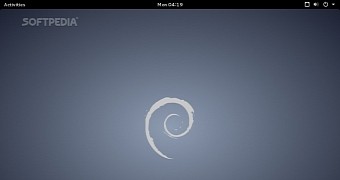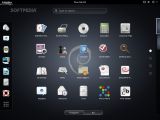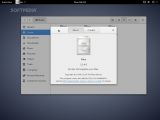The Debian community has been experiencing some interesting times lately and it all boils down to the adoption of systemd as the default init system. It might not seem like a big deal to regular users, but it's a different ball game for developers. Even if a part of the community saw this as a sign that Debian team is weakening, it might be a sign that it's actually stronger than people can imagine.
The last few days have been particularly interesting for the Debian project as quite a few developers have left the Technical Committee after they failed in their last attempt to stop or at least attenuate the systemd impact.
Another member of the systemd maintainer team chose to leave the project entirely. The bottom line is that some people are disappointed with the decisions, but they are still continuing with the project.
When a community becomes large enough to incorporate dozens or hundreds of people, it becomes increasingly difficult be to self-governed. It's also very likely that people won't agree with everyone else. It's simply impossible.
This is why you need a governing body, a technical committee, and people voting on initiatives. Some people will quit, others will get upset, but in the end the democracy will win. It might not seem like the best solution, but this is how Debian works.
Conflict is good
When conflict usually erupts in a community, it's usually about something important. Trivial matters don't really bug anyone. Also, one of the main reason for conflict is progress or what some might perceive as progress.
In this case, some Debian devs felt that systemd was a better solution then their previous init solution. It was a close vote, but systemd prevailed. Some felt that it was more about politics than technical merits, but once the decision was reached, things became clear.
The fact that devs disagree with each other over critical components of the system is actually vital, mainly because this is always something the precedes any kind of progress. It might prove to be a bad idea to get systemd, but the only way to know for sure is to try to make it work.
Things have started to calm down in the Debian world, or at least this seem to be the case. Keith Packard posted a very interesting message on the Debian mailing list, making amends to some of the issues that were raised.
"I'd like to apologize to the systemd maintainer team, and to Tollef in particular for my TC vote on the libpam-systemd bug. Josh Triplett (who is a systemd proponent although not a member of the Debian systemd team) raised some salient technical concerns about the effect of the proposed change, and Christian Seiler did a bunch of research to answer them. "
"The end result of this collaboration was that all agreed that the proposed solution was a good choice for Debian," wrote Keith Packard.
Tollef Fog was one of the people caught in the middle of the discussion and he left from his position of Debian systemd maintainer. It might be too late to get him back, but this is proof that Debian is a strong community and that systemd won't be its undoing.

 14 DAY TRIAL //
14 DAY TRIAL // 





